Struggling to recall the specifics of past fishing trips? Feeling puzzled over why some days yield a bountiful catch while others leave you coming up empty-handed? Believe me, you’re in good company.
Even I’ve had my fair share of head-scratching moments trying to decipher the art and science of fishing. But don’t fret – research indicates that keeping a meticulous fishing log can significantly elevate your angling prowess, preserve those heartwarming memories on water, and aid in predicting future triumphs.
Eager to reel in more victories with your rod and line? Well then, it’s about time we dive into the immersive world of fishing journaling and logging!
Key Takeaways
- Keeping a fishing log can help anglers preserve memories, reflect on past adventures, and improve their angling skills.
- A fishing log allows you to capture memories of special moments on the water, even when fish aren’t biting.
- By analyzing patterns and trends in your fishing log, you can make better decisions on future trips and increase your chances of success.
Reasons to Keep a Fishing Log
Keeping a fishing log can benefit anglers in various ways. Whether it’s capturing memories, reflecting on past adventures, improving angling skills, identifying patterns for consistent success, or learning from past successes and failures, a fishing log serves as a valuable tool for any fishing enthusiast.
Capture memories
Fishing is more than just catching fish. It’s about the whole trip, the people you are with, and the places you see. Every time you drop a line in water, it’s a new story. This is where a fishing log comes into play.
By keeping one, you save all those special stories. Each entry seals in the joy of your catch or that laugh when your friend fell in water! Even on days when fish aren’t biting, there are memories to keep.
Reflect on past adventures
A fishing log lets you travel back in time. It’s like a key to your past trips. All the fun and adventure, it all comes back with every word you read on your log entries. Each trip is unique, each catch special.
Yet a fishing log is more than just stories from the past. You learn from what has been done before. Mistakes made or best hooks used, everything gets noted down here. This way, you constantly grow better at angling without forgetting any lessons learned during prior adventures.
Improve angling skills
A fishing log helps to hone your angling skills. Each cast, catch, and miss hold a learning lesson. Write all these down in your fishing journal. Over time, you will see the patterns of what works best for you.
For example, certain bait might work best with a kind of fish.
There are many ways to become a better angler. One way is practicing how to cast smoothly or control lure weights. All these details can go into your fishing logbook as well. With each entry, you get one step closer to being an expert fisherman! Keeping track of goals and wins also boosts confidence on future trips.
Now take out that pen and start logging those catches!
Identify patterns for consistent success
Keeping a fishing log is essential for identifying patterns that lead to consistent success in angling. By recording details such as location, weather conditions, bait used, and catch details, anglers can analyze their past experiences and learn from both successes and failures.
This allows them to see trends and patterns over time, helping them make better decisions on future fishing trips. With the help of technology tools like fishing log apps, it’s easier than ever to keep track of this valuable information.
So start logging your fishing adventures today and unlock the secrets to consistent angling success!
Learn from past successes and failures
Keeping a fishing log allows me to learn from both my past successes and failures. By documenting the details of each fishing trip, including the location, date, weather conditions, bait used, and catch details, I can identify patterns that lead to consistent success.
When I review my previous entries, I can see what techniques and strategies worked well and which ones didn’t. This helps me analyze trends and make adjustments to improve my skills for future trips.
Whether it’s celebrating achievements or reflecting on lessons learned from failures, learning from past experiences is essential for becoming a better angler.
How to Start a Fishing Log
To start a fishing log, choose a journaling format like a journal, chart, or spreadsheet. Then, record essential information such as the location, date, weather conditions, bait used, and catch details.
You can also use technology tools like mobile apps or digital platforms for digital logging.
Choose a journaling format (journal, chart, spreadsheet)
I like to use a spreadsheet as my fishing log because it helps me efficiently record all the important data. With a spreadsheet, I can easily enter information like water temperature, wind, pressure, colors, and how many fish I caught.
Excel is a great tool for this kind of logging. But if you prefer something more traditional, you can go with a journal or even create your own chart. The format you choose should be based on what works best for you and makes it easy to keep track of your fishing adventures.
Record essential information (location, date, weather conditions, bait used, catch details)
When keeping a fishing log, it’s important to record essential information that can help you track your progress and improve your angling skills. This includes noting the location where you fished, the date of your trip, the weather conditions at that time, as well as details about the bait you used and any fish you caught.
By keeping a record of this information, you can identify patterns over time and learn from past successes or failures. So make sure to jot down all these important details in your fishing journal or log to help with future trips and ensure consistent success.
Use technology tools for digital logging
I love using technology tools for digital logging when it comes to keeping track of my fishing adventures. One excellent tool is the Fishery Activity and Catch Tracking System (FACTS), an electronic logbook that allows me to record all the important details of my trips.
It can be used on multiple devices and operating systems, making it super convenient. There are also many fishing journal apps available that help anglers like me keep track of our experiences and improve our skills.
With these tools, I can easily record information like location, date, weather conditions, bait used, catch details, and even include photographs or sketches if I want. Digital logging makes it so much easier to organize and analyze my fishing data and helps me become a better angler overall.
Benefits of Keeping a Fishing Log
Keeping a fishing log offers several benefits, including the ability to remember details from past trips, track progress and improvements, predict success on future outings, and analyze trends and patterns for more consistent results.
Remembering details from past fishing trips
As a fishing enthusiast, I know how important it is to remember the details from past fishing trips. That’s why keeping a fishing log is so valuable. By recording my experiences and documenting each adventure, I can easily recall specific locations, capture important details about the weather conditions, bait used, and catch details.
Whether it’s noting the biggest fish caught or reflecting on lessons learned, logging my fishing trips helps me preserve memories and organize all the information that can help me become a better angler in the future.
Tracking progress and improvements
Keeping a fishing log is essential for tracking progress and improvements in your angling skills. By consistently recording details of each fishing trip, such as location, weather conditions, bait used, and catch details, you can analyze patterns and identify what works best for you.
This allows you to refine your techniques and strategies over time, leading to more successful fishing experiences. Additionally, a fishing log serves as a memory backup for all your past trips, helping you remember important details and learn from both successes and failures.
With the insights gained from tracking your progress, you can set goals and targets for future trips while celebrating the achievements along the way.
Predicting success on future trips
Keeping a fishing log can be an essential tool for predicting success on future trips. By analyzing the observations and data recorded in your fishing journal, you can identify patterns and trends that contribute to successful angling.
Each fishing trip provides valuable scientific data about water conditions, fishing techniques, bait used, and more. By capturing this information in your fishing log, you can make informed decisions about where and how to fish on future trips.
This way, you increase your chances of having a successful day on the water. So grab your journal and start logging those catches!
Analyzing trends and patterns
Analyzing trends and patterns in your fishing log is essential for improving your angling skills and increasing your chances of success. By carefully examining the data you’ve recorded, such as location, bait used, and catch details, you can start to identify commonalities that can help you adjust your fishing strategy.
For example, you may notice that certain bait or techniques consistently yield more successful catches in specific locations or at certain times of the day. This information allows you to make informed decisions on future trips, increasing your likelihood of catching fish.
Additionally, tracking trends over time can reveal changes in fish populations or water conditions, helping you stay informed about the health of local habitats and contribute to conservation efforts.
By analyzing trends and patterns in my fishing log, I have been able to fine-tune my strategies and improve my success rate. It’s fascinating to see how different factors like water temperature or lure selection can greatly impact my results.
The Essentials to Log in a Fishing Journal
When keeping a fishing journal, it is important to log the water conditions, fishing techniques and strategies used, species caught and their size, bait and lures utilized, and the time of day during each fishing trip.
Water conditions (temperature, clarity)
Water conditions, such as temperature and clarity, are important to note in a fishing journal. By keeping track of the water temperature, you can learn about fish preferences and patterns.
This knowledge can help improve your fishing success in the future. Another crucial factor to record is water clarity, as it affects how fish behave and their feeding patterns. Including these details in your journal will give you a better understanding of the aquatic environment and increase your chances of catching more fish.
Fishing techniques and strategies
When it comes to fishing techniques and strategies, there are several methods you can try. Some popular techniques include bait fishing, fly-fishing, bait casting, spinning, and trolling.
Bait fishing involves using live or artificial baits to attract fish. Fly-fishing uses lightweight flies that imitate insects to trick fish into biting. Bait casting and spinning involve casting lures or bait with a reel attached to the rod.
Trolling is done by dragging lures or bait behind a moving boat. Each technique has its own advantages and can be effective depending on the type of fish you’re targeting and the conditions you’re fishing in.
Species caught and size
When fishing, it’s important to keep track of the species you catch and their sizes. This information can tell you a lot about how successful your fishing trip was. For example, if you caught a variety of different species in different sizes, it may indicate that you were using effective techniques and baits.
On the other hand, if you only caught small fish of one particular species, it could mean that you need to adjust your approach. By recording the species and size of the fish you catch, you can start to identify patterns and trends that will help improve your future fishing endeavors.
It’s an essential part of creating a comprehensive fishing log that provides valuable information for your angling skills.
Bait and lures used
When it comes to bait and lures used in fishing, there are different options available. Some anglers prefer artificial lures, such as plastic worms or metal spoons, while others opt for live bait like worms or minnows.
Artificial lures can be more effective in certain situations and are designed to imitate food sources that fish find irresistible. They come in various shapes, sizes, and colors to attract different species of fish.
On the other hand, live bait can be appealing to a wide range of fish and is often used when targeting specific species or in situations where artificial lures may not work as well.
Time of day
I believe that logging the time of day is a crucial aspect to include in your fishing journal. Understanding when you caught fish can provide valuable insights into their behavior and feeding patterns.
By recording the time you had success, you can begin to notice trends and determine the best times for future fishing trips. This information will help you optimize your angling strategies and increase your chances of consistent success.
So, don’t forget to jot down the time of day in your fishing journal for a more comprehensive record of your experiences on the water!
Motivation and Inspiration from Logging
Keeping a fishing log can provide motivation and inspiration by allowing you to see your progress and growth as an angler. Setting goals and targets based on past experiences recorded in your log can help drive you to improve and achieve even more success in the future.
Celebrating your achievements along the way gives you a sense of accomplishment and encourages you to continue logging and pushing yourself to new heights.
Seeing progress and growth
Keeping a fishing log can be a great way to see progress and growth in your angling skills. By recording details of your fishing trips, such as location, date, bait used, and catch details, you can track your successes over time.
It’s exciting to look back on past entries and see how far you’ve come as an angler. You may notice patterns or trends that can help you improve your techniques and increase your chances of success in the future.
Logging your fishing adventures is not only informative but also motivating. It gives you a sense of accomplishment and inspires you to set new goals for yourself. So grab a journal or spreadsheet and start noting down those memorable moments on the water!
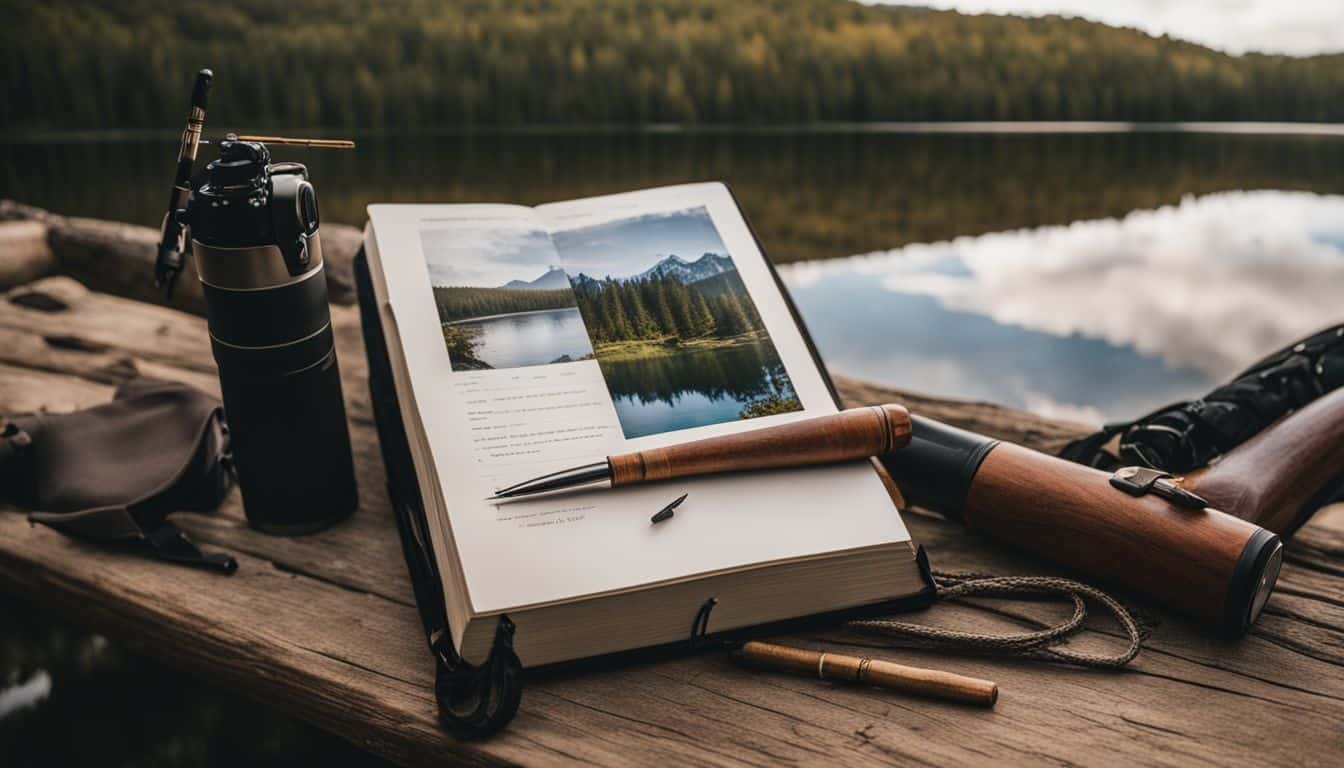
Setting goals and targets
Setting goals and targets is essential for achieving success in fishing. When we have clear objectives, it gives us something to strive for and helps maintain our motivation and focus.
By setting ambitious but attainable goals, we can improve our angling skills and push ourselves to new levels of achievement. When we see progress towards our goals, it boosts our confidence and determination, driving us to work harder and smarter.
So go ahead, set those targets that challenge you, and watch as you surpass them with ambition and determination.
Celebrating achievements
Logging and journaling our fishing experiences is not just about keeping records; it’s also a way to celebrate our accomplishments. By documenting our successes, we can reflect on how far we’ve come in our angling journey.
It’s a chance to see the progress we’ve made, the milestones we’ve achieved, and the personal growth we’ve experienced along the way. Whether it’s catching a bigger fish than before or mastering a new technique, celebrating these achievements can boost our motivation and inspire others to pursue their own goals.
So let’s take a moment to acknowledge and appreciate every achievement in our fishing log – big or small!
Other Tips for Fishing Journaling
Include photographs and sketches to visually capture your fishing experiences. Reflect on the lessons learned during each trip and take note of any insights or strategies that could be useful in the future.
Share your journal with other anglers to inspire and learn from one another’s experiences.
Include photographs and sketches
Including photographs and sketches in your fishing journal is a great way to enhance your experience. Not only do these visual representations help you remember the details of your fishing trips, but they also add a personal touch to your journal.
Take pictures of the beautiful sceneries, catches, or even fellow anglers. You can also sketch any interesting observations or designs on the cover or inside pages of your journal.
By including photographs and sketches, you can create a unique and visually appealing record of your fishing adventures that you can look back on with pride.
Reflect on lessons learned
Reflecting on lessons learned is a crucial part of fishing journaling. By looking back at past experiences and analyzing what worked and what didn’t, we can gain valuable insights that will improve our angling skills.
It’s important to pay attention to details like water conditions, bait used, and fishing techniques employed. By noting these factors in our fishing logs, we can identify patterns and make adjustments for future trips.
Logging also allows us to track progress and growth over time, set goals for ourselves, and celebrate achievements along the way. Sharing our journals with other anglers can also provide inspiration and open up opportunities for learning from one another’s experiences.
Share your journal with other anglers
I love sharing my fishing journal with other anglers in the angling community. It creates a sense of camaraderie and allows us to exchange valuable tips and experiences. By writing about my fishing trips, I can share detailed reports with others, discuss different techniques, and learn from fellow anglers.
We can celebrate each other’s achievements and support one another in reaching our fishing goals. Sharing our journals creates a wonderful opportunity for building a strong community and expanding our knowledge of the sport we all love.
Tools and Resources for Fishing Journaling
Explore various tools such as fishing log books, mobile apps, and online communities to enhance your fishing journaling experience. Discover how these resources can help you track your progress, set goals, and connect with other anglers who share the same passion.
Fishing log books and templates
I love using fishing log books and templates to keep track of my fishing adventures. They come in different formats like journals, charts, or spreadsheets. These log books are really helpful for recording important details about my trips, such as the location, date, weather conditions, bait used, and catch details.
You can also use digital tools like mobile apps or online platforms for logging your data. With these log books and templates, I can easily review past trips, analyze patterns and trends in fish behavior and habitat conditions to improve my angling skills.
It’s a great way to see progress and set goals for future fishing trips too!
Mobile apps and digital platforms
I find mobile apps and digital platforms to be incredibly useful tools for fishing journaling. They offer convenience, organization, and enhanced capabilities compared to traditional pen-and-paper methods.
With fishing apps like the Great Lakes Fish Finder App, I can easily identify different fish species through community-sourced data. And with electronic logbooks such as the Fishery Activity and Catch Tracking System (FACTS), I can conveniently track my fishing activity and catches on multiple devices.
These digital tools also enable me to collect and analyze data, communicate with other anglers or experts, and gain insights that can help improve my angling skills. Whether it’s identifying species, logging catches, or connecting with fellow fishermen, mobile apps and digital platforms make fishing journaling more efficient and enjoyable.
Online fishing communities
I love being part of online fishing communities! These communities provide a wealth of tools and resources for fishing journaling. I can gather information from other anglers, share my own experiences, and learn new techniques.
On these platforms, I can connect with fellow fishing enthusiasts, ask questions, and get advice. It’s also a great way to stay updated on the latest trends in the fishing world. Plus, some online communities have mobile apps that make it easy to log my catches and track my progress.
Being part of an online fishing community has definitely enhanced my angling experience!
Fishing Journaling for Conservation
Tracking endangered or threatened species, monitoring catch and release practices, and noting changes in fish populations and habitats are important aspects of fishing journaling for conservation.
Tracking endangered or threatened species
As a fishing enthusiast, it’s important to be aware of the impact our activities can have on the environment. One way we can contribute to conservation efforts is by tracking endangered or threatened species.
Did you know that small-scale fisheries are responsible for catching a significant number of threatened species, especially elasmobranchs? Around one-third of these species are in danger of extinction.
By keeping track of the species we catch and releasing any threatened ones, we can help protect their populations. Monitoring catch and release practices is crucial because it allows us to note changes in fish populations and habitats.
This information helps scientists make informed decisions about wildlife protection and conservation measures.
Monitoring catch and release practices
When practicing catch and release fishing, it is important to monitor our practices to ensure the best possible outcome for the fish. We should learn proper techniques for releasing fish to maximize their survival rates.
By doing this, we can help protect fish populations and contribute to ecosystem conservation. It’s good to remember that while some catch-and-release fish may die, using proper release techniques can significantly reduce mortality rates.
Noting changes in fish populations and habitats
As a fishing enthusiast, I find it crucial to note changes in fish populations and habitats. By keeping track of these changes, we can contribute to conservation efforts and protect our valuable fisheries.
Environmental pollution, illegal fishing practices, habitat alteration and loss, bycatch reduction, climate change impacts, and the effects of Covid-19 on fish are all important factors to consider.
It is also essential to recognize the role of local ecological knowledge (LEK) in understanding fish species and their habitats. Social network analysis (SNA) can help us integrate social aspects into fish conservation.
Conclusion on Fishing Journaling And Logging Tips
In conclusion, keeping a fishing log is an effective way to capture memories, reflect on past adventures, and improve your angling skills. By recording essential information and analyzing patterns, you can consistently achieve success in your fishing trips.
Don’t forget to use tools like journaling apps or log templates to make the logging process easier. So start journaling today and enhance your fishing experience!
FAQs on Fishing Journaling And Logging Tips
1. Why is journaling and logging important for fishing?
Journaling and logging in fishing are important because they help you track your progress, remember successful techniques or locations, and learn from past experiences.
2. What should I include in my fishing journal or log?
In your fishing journal or log, you should include details such as the date, weather conditions, water temperature, location, species caught, bait used, and any observations or notes about the day’s fishing.
3. How often should I update my fishing journal or log?
It’s best to update your fishing journal or log after each fishing trip while the details are fresh in your memory. This will ensure accurate and thorough documentation of your experiences.
4. Can I use a digital app or do I need a physical notebook for my fishing journal?
You can choose either option based on personal preference. There are many digital apps available that allow you to easily record and store your fishing data electronically. Alternatively, some anglers prefer using a physical notebook to jot down their entries.
5. How can reviewing my fishing journal or log improve my success?
Reviewing your fishing journal or log allows you to identify patterns in fish behavior, determine which techniques work best under specific conditions, and make informed decisions for future trips based on past successes and failures.

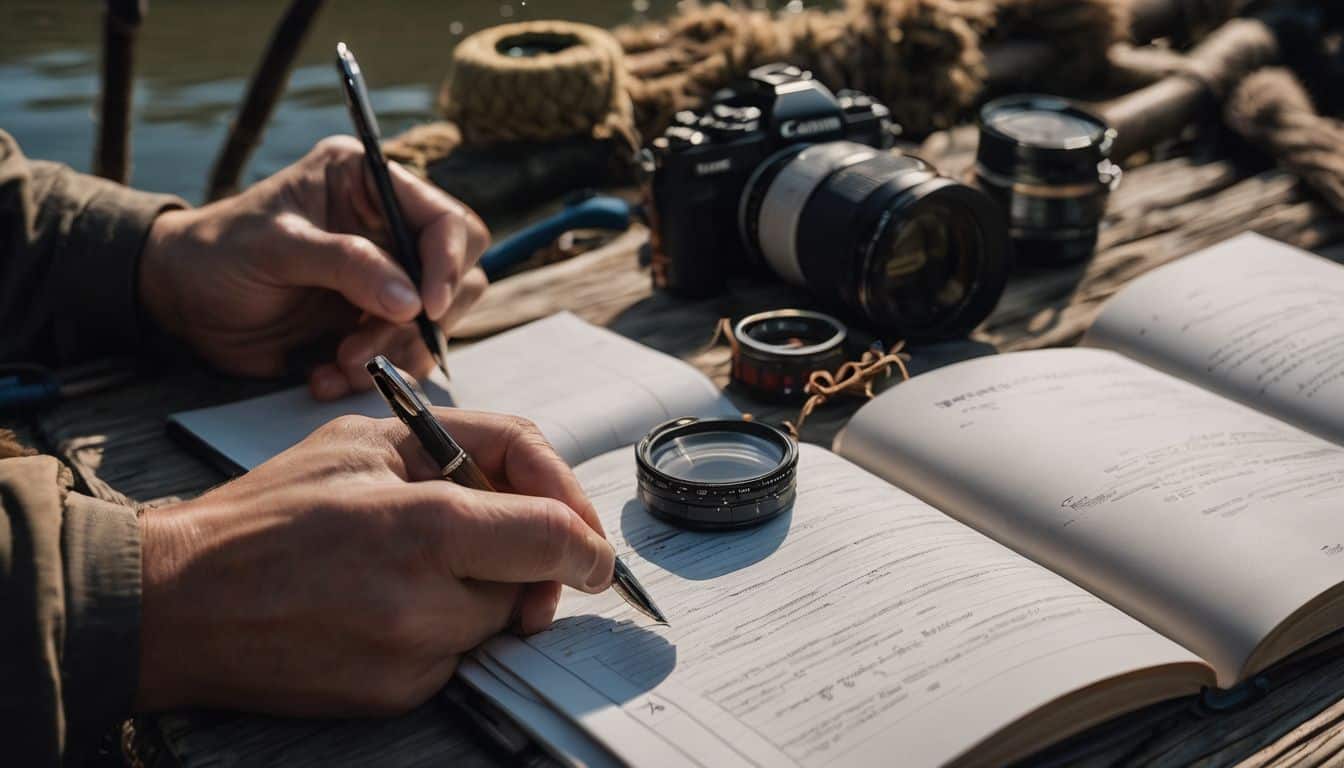
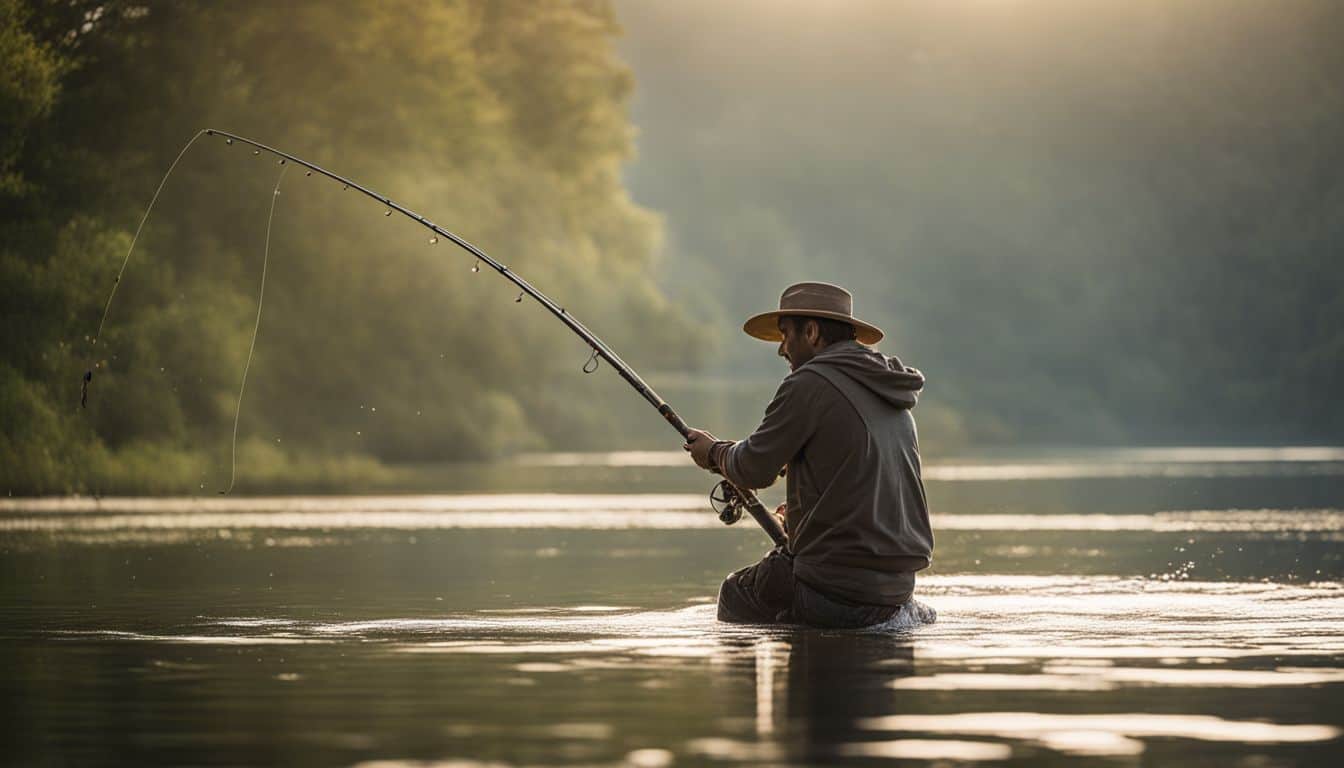

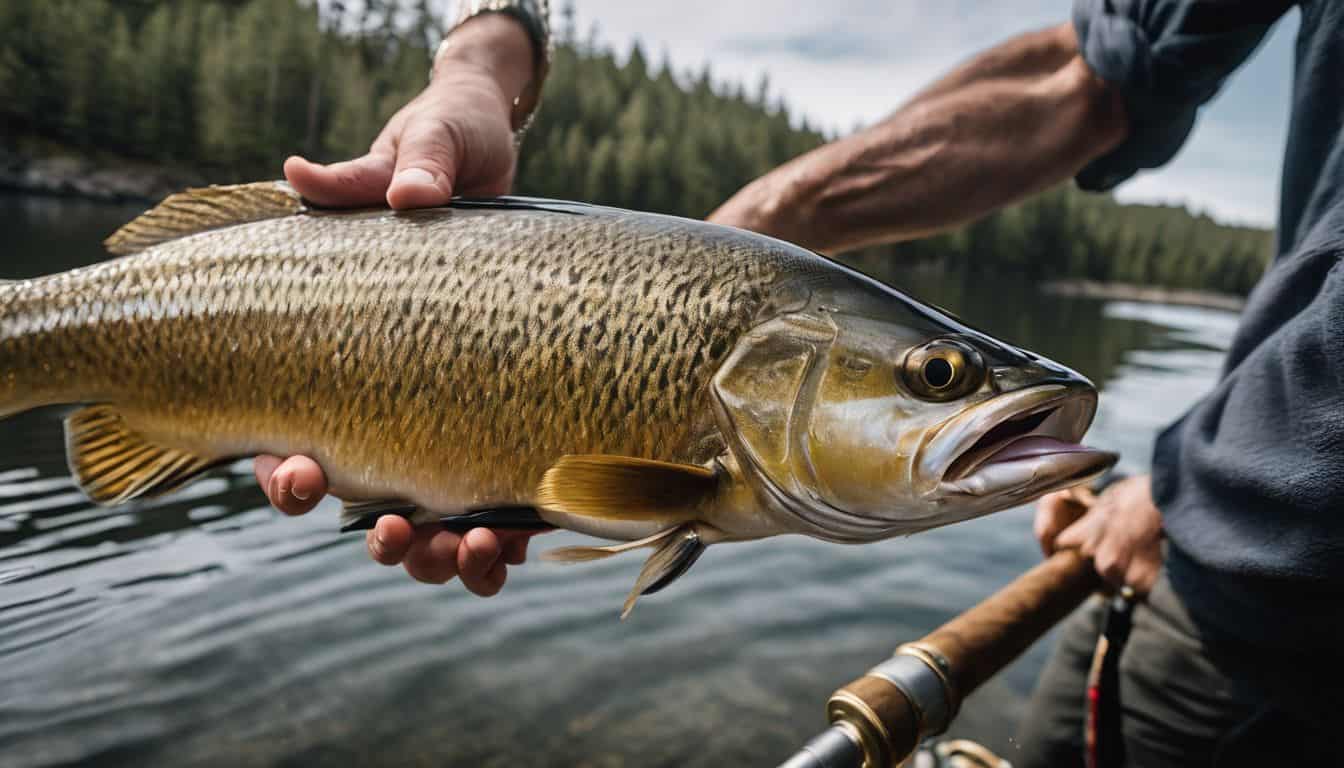
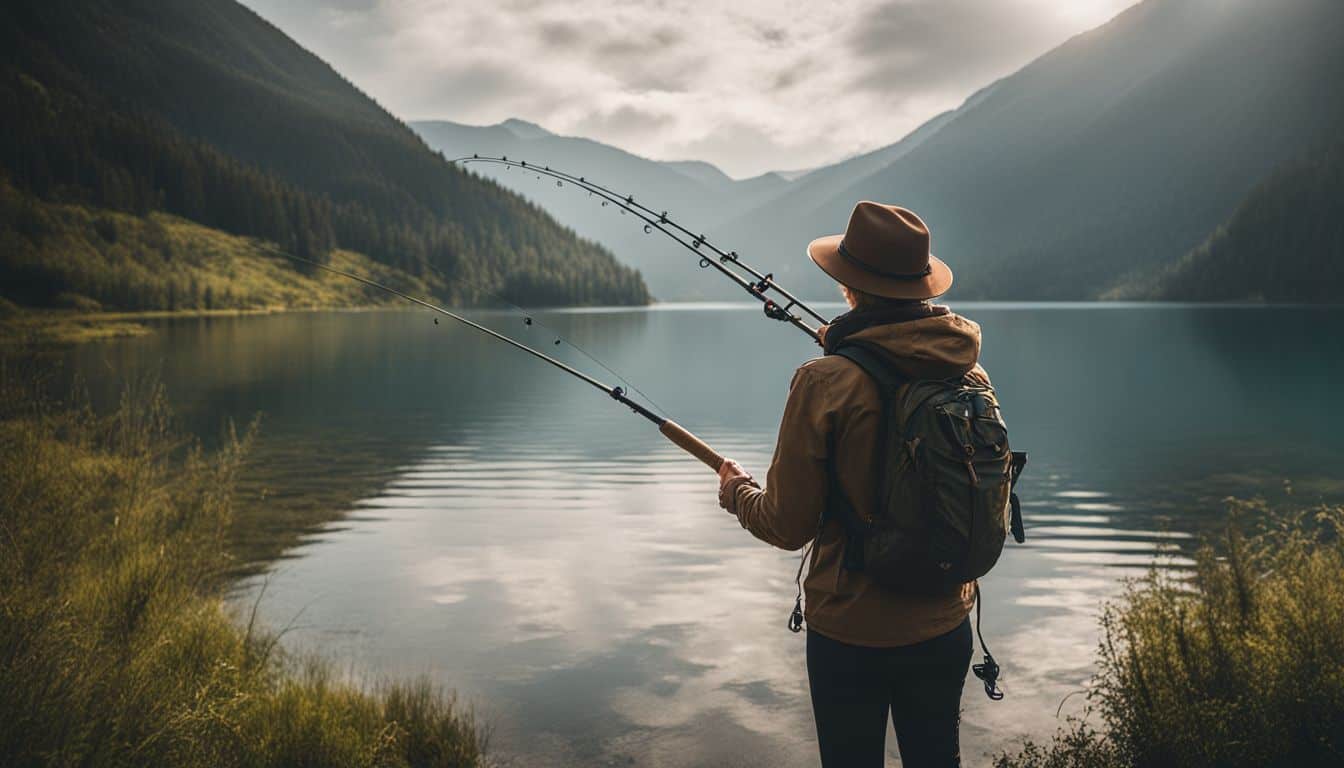
Leave a Reply